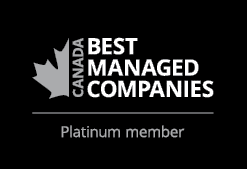Cowan Benefits Ltd.’s annual client event, THINK 2024, brought together experts to share actionable insights for businesses looking to strengthen their employee benefits programs. The opening session, led by Tari Duguay, Principal Consultant and Practice Lead in Group Benefits Consulting, set the tone for a day of strategic learning. Tari’s presentation, Evolving Your Benefits Plan, focused on aligning benefits programs with corporate goals, fostering employee well-being, and ensuring measurable outcomes.
The Five Pillars of a Benefits Plan Philosophy
Tari introduced attendees to the Five Pillars of a Benefits Plan Philosophy, a framework designed to help organizations craft a benefits strategy tailored to their unique needs. Each pillar builds upon the last, ensuring a holistic approach to benefits planning.
1. The Purpose of Your Program
Why does your organization offer benefits in the first place? Defining the purpose is foundational, as it sets the tone for all subsequent decisions. Whether your focus is on attracting top talent, supporting employee health, or enhancing engagement, your program’s complexity should match your organization’s goals.
Tari emphasized that the scope of a benefits plan can vary significantly. Whether simple or elaborate, the plan should be an extension of your organization’s identity. This alignment strengthens your role as a leader in supporting your team.
2. Corporate Responsibility: What Should You Provide?
Organizations are responsible for considering what types of coverage will best serve their teams. From life insurance and disability coverage to health and dental plans, the options are vast. However, navigating these choices requires strategic decision-making.
Key considerations include:
- Life and Disability Coverage: Should the employer or employees bear the cost of premiums?
- Health and Dental: Are you offering a basic, median, or enhanced plan?
- Mental Health Support: Separate maximums for mental health practitioners can provide targeted assistance.
These decisions are opportunities to reflect the organization’s values and culture, ensuring that the benefits offered resonate with employees’ needs.
Let our team of expert consultants help you customize your group benefits program.
3. Employee Accountability and Participation
Employees are the ultimate beneficiaries of a benefits program, so their role in funding and participation is pivotal. Tari highlighted mechanisms like co-insurance and payroll deductions as ways to share costs while encouraging thoughtful use of resources.
Promoting smart consumerism was another focus. Tools like dispensing fee caps or partnerships with online pharmacies can reduce costs while improving convenience. For instance, online pharmacies enable timely refills, promoting medication adherence and healthier outcomes.
4. Aligning Benefits with Corporate Culture
Perhaps the most critical pillar is ensuring that benefits align with your organization’s culture, vision, and mission. Tari posed vital questions for organizations to reflect on:
- What is your corporate culture? Is it centralized or geographically dispersed? Hybrid or fully remote?
- What are your business goals? Are you scaling up, acquiring, or focusing on retention?
- How do you define competition? Does your benefits plan lag, match, or exceed industry benchmarks?
Whiteboarding sessions with leadership and advisors can clarify these aspects, ensuring that the benefits program mirrors organizational priorities. Flexibility also emerged as a key theme. From modular plans to full cafeteria-style flex plans, tailoring benefits to employees’ diverse needs can significantly impact satisfaction and retention.
5. Measuring Desired Outcomes
To ensure that benefits plans remain effective, organizations must track their impact. Tari advised using metrics such as:
- Attraction and Retention Rates: Are the benefits helping secure and retain top talent?
- Absenteeism and Disability Claims: Have targeted wellness strategies reduced these occurrences?
- Health Outcomes: Are chronic conditions being managed more effectively?
Continuous improvement is crucial. Organizations can ensure alignment with evolving employee and business needs by refining and redesigning benefits plans based on measurable outcomes.
Emerging Trends and Practical Tools
Tari’s presentation also shed light on emerging trends and tools that are reshaping the benefits landscape:
- Virtual Care: Access to same-day consultations with healthcare providers offers a practical solution for employees without family doctors.
- Mental Health Programs: Virtual mental health services can address acute concerns quickly, reducing wait times and improving outcomes.
- Wellness Initiatives: Movement challenges, fitness memberships, and personal spending accounts encourage healthy lifestyles while fostering inclusivity and financial wellness.
- Support for DEI Initiatives: Programs like gender affirmation and family-building benefits (e.g., surrogacy or adoption support) align with corporate diversity, equity, and inclusion goals.
- Women’s Health: Menopause and hormonal health programs address specific needs, particularly in organizations with a large female workforce.
Each of these innovations underscores the need for a benefit plan to reflect both employee demographics and organizational priorities.
The Investment in Your Team
At the heart of Tari’s message was a powerful reminder: Your employees are your most valuable investment. Beyond being a significant expense, your workforce drives organizational success. A well-designed benefits program can enhance employee health, engagement, and productivity, ultimately delivering a strong return on investment.
Tari closed her session with actionable takeaways:
- Review Plan Design: Ensure it aligns with your corporate culture and goals.
- Assess and Adapt: Evaluate whether the plan meets employee needs and explore changes as needed.
- Measure and Refine: Use metrics to track outcomes and refine strategies.
Final Thoughts
Evolving a benefits program is not a one-time task—it’s an ongoing journey. As Tari noted, the best plans are those that adapt to the shifting needs of employees and the organization. By investing thoughtfully in employee benefits, companies can create a culture where team members feel supported and valued.
The THINK 2024 event reinforced the critical role of benefits in fostering thriving workplaces. With guidance from experts like Tari Duguay, organizations can confidently navigate the complexities of benefits planning, ensuring long-term success for both employees and employers.
Video highlights from Tari's presentation

-min.jpg?width=400&name=MFA_Blog%20(1)-min.jpg)
-min.jpg?width=400&name=AJ%20Feltis%20(1)-min.jpg)
-min.jpg?width=400&name=Healthy_Workplace_Blog%20(1)-min.jpg)

